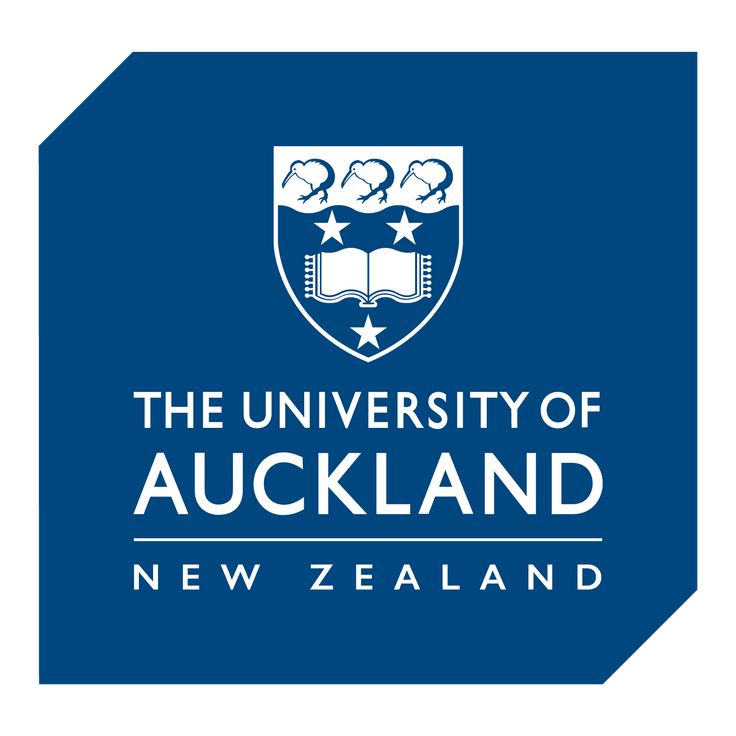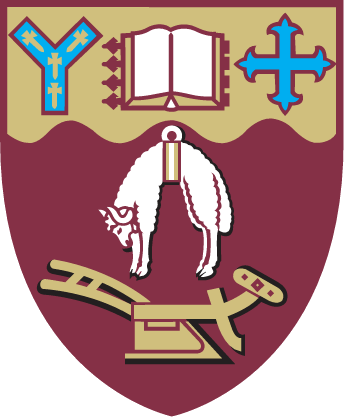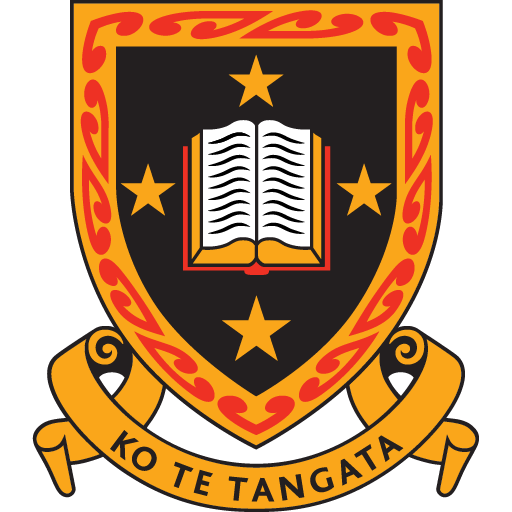Top Universities in NEW-ZEALAND
When deciding which university to study at, it is crucial that you also look at the world university rankings. Study in NEW-ZEALAND offers you access to some of the world’s top institutions.
More About New Zealand
An island nation in the South Pacific, New Zealand is famous for its spectacular natural geography of mountainous, forested ridges and hills but also beaches. New Zealand is also known as this 'Land of the Long White Cloud' for its outdoor lifestyle: hiking, bungee jumping, skiing as well as water sports. Several plants and animals that are found nowhere else in the world thrive in the country whose biodiversity is unique.
Documents Required for New Zealand Study Visa
- Valid Passport: Must be valid for at least 3 months after your intended departure.
- Offer of Place: A letter of acceptance from a New Zealand educational institution.
- Visa Application Form: Completed visa application form for the student visa.
- Proof of Sufficient Funds: Bank statements, scholarship letters, or proof of sponsorship that show you can support yourself financially during your studies.
- Proof of Health Insurance: Required to cover your stay in New Zealand.
- Academic Qualifications: Copies of your diplomas, certificates, and transcripts.
- Proof of English Proficiency: IELTS or other equivalent test results.
- Passport-Sized Photos: As per the New Zealand visa application guidelines.
- Visa Fee Payment Receipt: Proof of payment for the student visa application fee.
- Return Travel Evidence: Proof of return arrangements to your home country after your studies are completed.
Documents Required to Study in New Zealand
- Valid Passport: Your passport must be valid for at least 3 months beyond your planned stay in New Zealand.
- Offer of Place: An official letter from a New Zealand institution confirming your acceptance into a course.
- Visa Application Form: The completed visa application form for a student visa.
- Proof of Financial Support: Documents showing that you have sufficient funds to cover tuition fees, living expenses, and other costs (e.g., bank statements, scholarship letters, financial guarantee).
- Proof of English Language Proficiency: IELTS, TOEFL, or other recognized test scores depending on the program and university requirements.
- Health and Travel Insurance: Proof of medical insurance covering your stay in New Zealand.
- Academic Transcripts and Certificates: Copies of your academic qualifications, such as high school diplomas, degree certificates, and transcripts.
- Passport-Sized Photos: Recent passport-sized photographs as per visa specifications.
- Evidence of Accommodation: Proof of where you will live while studying in New Zealand (e.g., university dormitory, private rental agreement).
- Return Travel Arrangements: Proof of return travel plans, such as a return ticket or sufficient funds for travel at the end of your study.
Popular Courses In NEW-ZEALAND
New Zealand offers popular courses in engineering, medicine, law, and creative arts. Universities like the University of Auckland and University of Otago are renowned for their research-led programs, while the University of Waikato is recognized for indigenous studies and environmental planning.

Scholarships in NEW-ZEALAND
- New Zealand Scholarships (NZS)
- University of Auckland International Student Scholarships
- Victoria University of Wellington International Excellence Scholarship
- University of Otago International Research Scholarships
- Auckland University of Technology (AUT) International Excellence Scholarships
- Lincoln University International Scholarships
- Southern Institute of Technology (SIT) Scholarships
- NZIDRS (New Zealand International Development Scholarships)
- Aotearoa New Zealand Government Scholarships
- Commonwealth Scholarships
Study in NEW-ZEALAND: Additional Tips
Deadlines
Be aware of application deadlines, which can vary significantly between institutions.
Research
Each school may have specific requirements, so always check the school’s website for detailed information.
Interviews
Some programs may require an interview as part of the application process.
If you have a specific school or program in mind, it’s best to check directly with them for the most accurate requirements.
Study in New Zealand- The Roadmap With Class24
With Class24 studying in the NEW-ZEALAND is a structured step by step process which helps the student in getting application through, understanding visa procedure and selecting best courses for the student. The thorough support provided by this allows the students to make the best decision they can to support their academia in the NEW-ZEALAND.
Highest-Paying Jobs in Zealand
The highest paying jobs in New Zealand are generally in sectors such as medicine, law, engineering and technology. The salary charts also show surgeons, doctors and anesthetists with annual earnings often exceeding NZD 200,000 as a result of the specialized nature of their work. Salaries are also quite high for lawyers, especially in corporate law, and the best jobs in law firms come with very generous pay. Paying well for the engineers are those in mining, civil and petroleum engineer as the country focus on infrastructure development and natural resource development. Since the tech sector is still growing, information technology professionals like software developers and IT managers have high paying opportunities. Moreover, the most lucrative roles of the company, being in senior management for instance CEO or CFO, exist. Also in high paying careers are pilots, dentists and specialised consultants.
| Job Title | Average Base Salary (2024) |
|---|---|
| Anesthesiologist | ~$450,000 |
| Surgeon (Specialist) | ~$400,000 |
| Oral and Maxillofacial Surgeon | ~$400,000 |
| Obstetrician and Gynecologist | ~$350,000 |
| Psychiatrist | ~$250,000 |
| Physician (General Practice) | ~$220,000 |
| Dentist | ~$200,000 |
| IT Manager | ~$150,000 |
| Software Engineering Manager | ~$140,000 |
| Data Scientist | ~$130,000 |

Get Admission into top NEW-ZEALAND universities with the help of expert counsellors
Save up-to ₹3 Lakhs with us!*
Discuss with Expert for FREEBenefits

High Quality Education
New Zealand universities are known for their excellent academic standards, offering high-quality education alongside innovative research and practical learning experiences.

Various Study Programmes
Many universities in New Zealand offer a broad range of English-taught programs, particularly for Master's and Ph.D. students, catering to international students.

Opportunities post graduation
New Zealand offers diverse job opportunities across various sectors such as technology, healthcare, business, and tourism, making it an attractive destination for graduates.

Cultural diversity
New Zealand's inclusive society embraces cultural diversity, making it an ideal environment for both local and international students to thrive in a welcoming setting.

Work
International students in New Zealand can work part-time during their studies, with flexible work regulations that help students gain professional experience and support living costs.

English Language Advantage
As an English-speaking country, New Zealand offers numerous programs in English, allowing international students to study without language barriers.

Research and Innovation
New Zealand universities are leaders in research and innovation, providing students with access to cutting-edge facilities and opportunities to contribute to global advancements.

Historical and Cultural Experience
New Zealand offers a rich mix of history, indigenous M?ori culture, and beautiful natural landscapes, providing students with a unique cultural and educational experience.

Alumni networks are strong
New Zealand’s universities boast strong alumni networks that provide students with valuable connections and career opportunities even after graduation.
Monthly Living Expenses in NEW-ZEALAND
Daily living costs in the United Kingdom vary mostly with region and your lifestyle. Here’s an in-depth look:

Accommodation:
On-campus housing costs between NZD 150 to NZD 300 per week, while off-campus options range from NZD 200 to NZD 450 per week, depending on location.

Food and Groceries
Groceries typically cost NZD 80 to NZD 150 per week, with meals at inexpensive restaurants ranging from NZD 15 to NZD 25.

Transportation:
Public transport costs around NZD 100 to NZD 200 per month. Taxis or Uber rides usually cost between NZD 10 to NZD 30 per trip.

Miscellaneous Costs
Miscellaneous expenses, including entertainment and personal items, typically range from NZD 50 to NZD 150 per week.
Low
High
Study Abroad Made Simple
Increase your chances of admission upto70%
The NEW-ZEALAND is one of the country’s booming economies. This is the reason that international students go to the United States.
Request a CallbackKnow Real Stories of Real People, How They Went from India to Abroad!
Get ready to be inspired by the incredible story of students who turned their dreams into reality.
- Free counselling sessions by an educational consultant
- Database of multiple reputed universities under one roof
- Trustworthy and affordable overseas study plans
Document Get Help in Handling All the Legal Papers
The help that one can get with handling legal documents helps to make sure that all of the required paperwork is managed properly and efficiently. From immigration to contracts, whether you need these services for immigration, contracts for academic requirements, professional services can make it easy for you to travel the thorny legal path. Working with these experts, document preparation, submission deadlines and compliance with local laws are brought under control and thus the risk of making errors or delays is reduced. Without understanding legal documents, people need help with legal document assistance, which ultimately reassures them and saves their time while coming up with important transactions.
Study in New Zealand
There are a lot of good universities in New Zealand and the country is an excellent destination for higher education such as the University of Auckland and Victoria University of Wellington, among others. The education system of the country focuses on innovation, research and practical learning, making students’ academic experience one of a kind and durably enriching. This means when you study in New Zealand, you will be part of a multicultural environment, meeting and interacting with people from different walks of life and expanding your global network. On top of offering students amazing life experiences in some of the world’s most beautiful environments, the city also provides them with enough scenic landscapes as well as outdoor lifestyle to help maintain balance between academic life and learning as well. New Zealand offers an exciting and unforgettable educational experience in such areas as business, engineering, arts or healthcare.
Culture in the New Zealand:
There is a wealth of cultural heritage in New Zealand that was created from Māori roots and a very diverse immigrant build up. Traditions, art and language of Māori culture continue to have an important place in the everyday life of the country’s Māori. Festivals, art and music are all a reflection of the unique blend of the European, Pacific Island, and Asian influences.
New Zealand is well known for having the freshest, locally produced food in the world, and one of these is seafood, lamb, and dairy products. Food ranges from the traditional Māori hangi (a method of cooking of food in an underground oven) to Asian fusion and international cuisines.
Frequently Asked Questions

Cast Your Eyes Upon Our Newest Article

Student Visa for Dubai 2026: Application Process, Eligibility, Cost, Work Rights & Latest Rules
Dubai has been quick to become a global education destination of choice for international students. Offering internationally recognised universities, industry-focused courses, innovative facilit...
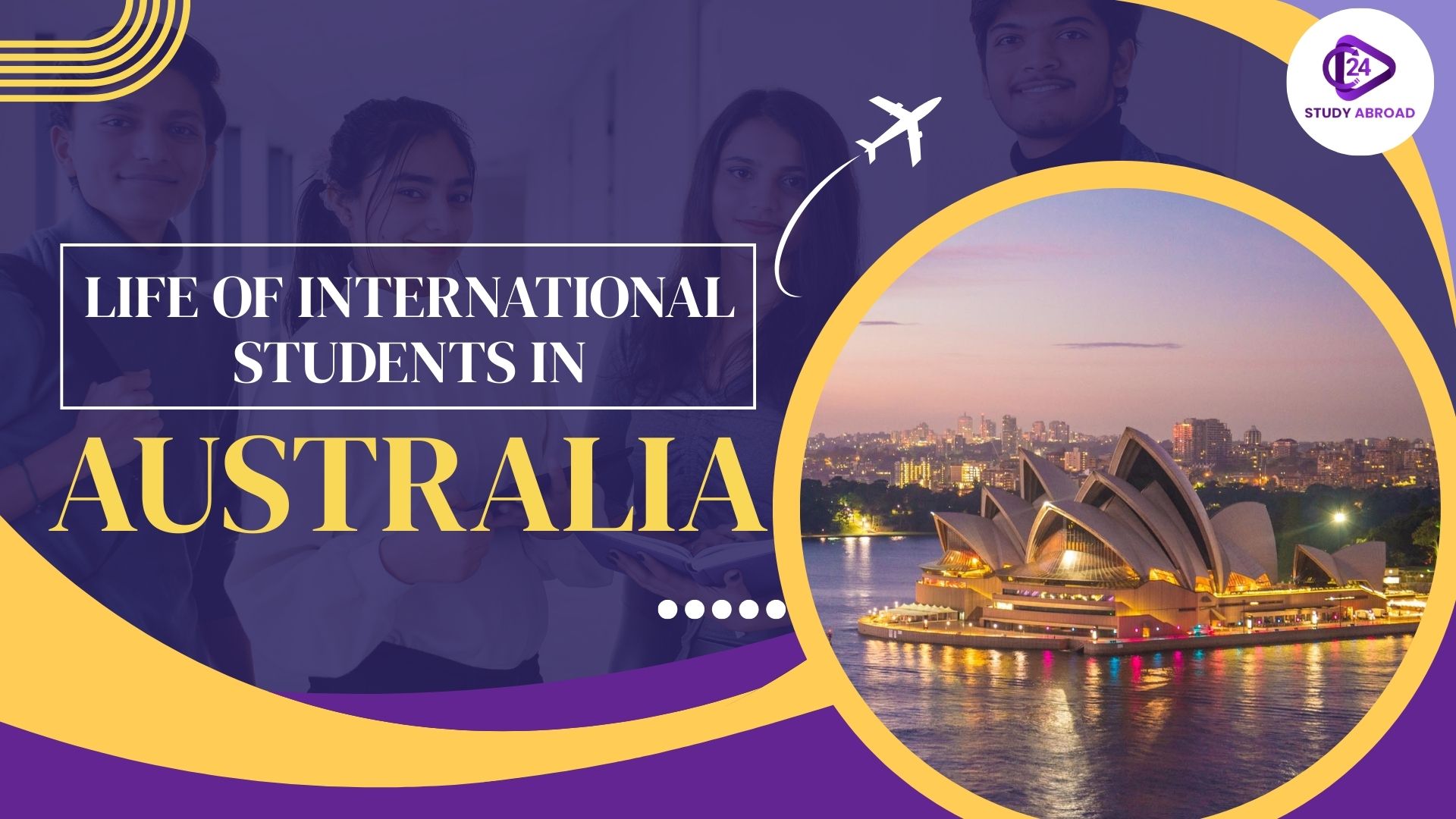
Life of International Students in Australia: Cost of Living, Climate, Culture, Housing & Safety
Australia has emerged as one of the most desirable places of study to international students. Australia is a preferred location with world-class universities, globally recognised degrees, part-t...
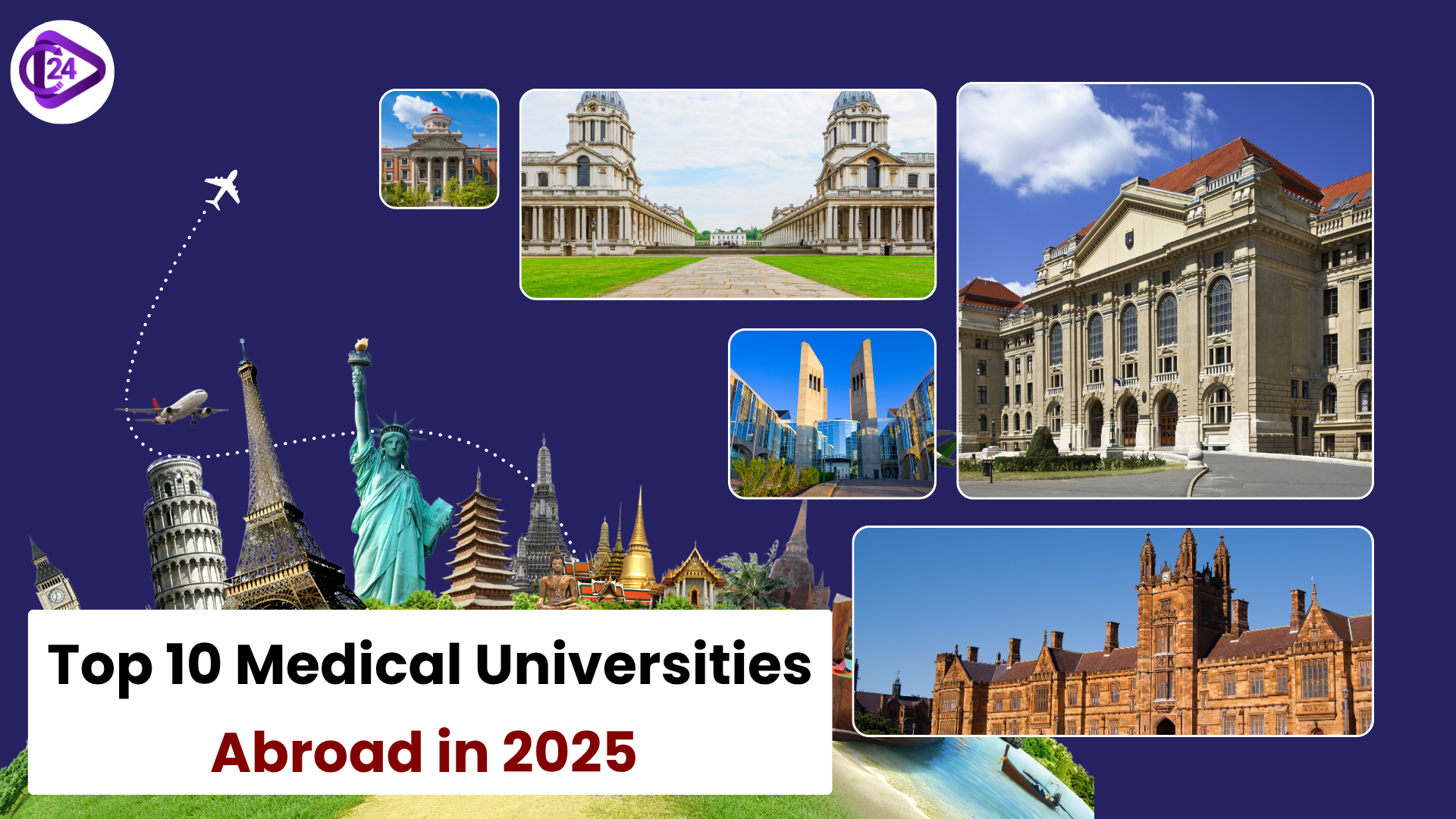
Top 10 Medical Universities Abroad in 2025
In order to study medicine at a foreign university, it is possible to access high-quality training, advanced research, and a career at the international level. With the increasing needs of skill...


